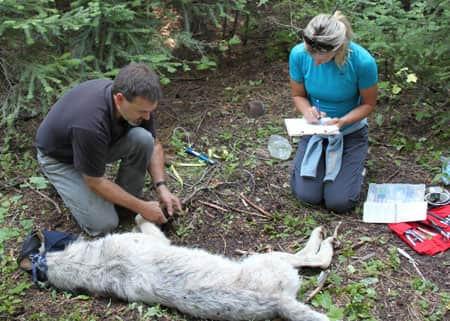Oregon DFW Approves “Last Resort” Wolf Shooting Provision
OutdoorHub Reporters 07.16.13

Last week the Oregon Fish and Wildlife Commission affirmed a number of rules that would allow ranchers to kill wolves threatening their livestock, but only as a measure of last resort. According to the Associated Press, the new provisions constitute a significant amendment to the state’s Wolf Management Plan. It would also make Oregon the only state in the West to allow the use of potentially lethal methods for protecting livestock from wolves.
The new provisions came about after a lawsuit pitted ranchers against conservation groups, with the state’s Department of Fish and Wildlife (DFW) caught in the middle. Following the filing of a legal motion by organizations such as Oregon Wild against the state in 2011, DFW officials ceased to conduct management kills and the state’s wolf management ground to a halt.
The lawsuit was recently settled in a bid to appease both sides of the debate. As a compromise, ranchers are required to provide evidence of taking non-lethal steps before unlocking the gun cabinet. The purchase of wolf deterrents such as alarm boxes or fladry-mounted fences could satisfy this requirement. The DFW also requires concrete evidence that wolves have been in the area and killing cattle, which can be corroborated with GPS tracking of wolf collars and the remains of dead livestock.
Although the compromise would allow livestock owners to shoot and kill wolves, the provisions have been only lukewarmly received by ranchers.
“I don’t think it’s a whole lot different from the wolf plan already being implemented,” said Oregon Cattlemen’s Association’s executive director Kate Teisl. “Now there’s just more documentation. Ranchers are out there doing all they can to keep their animals alive, including the non-lethal measures.”
Oregon Wild spokespeople say they are optimistic about the new direction of wolf management.
“It’s now up to the Oregon Department of Fish and Wildlife, the livestock industry, and the conservation community to honor the agreements that we have made,” said spokesman Rob Kavins. “If we do so, I am optimistic we will continue to see conflicts between wolves and livestock continue to be rare, and the need to kill wolves even rarer still.”

